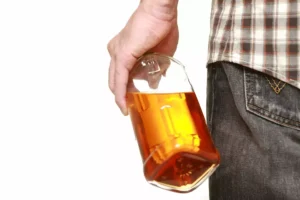What reducing alcohol can do for your health
Cele Tocmac Bune Sloturi microgaming sloturi online pentru jocuri Online Când Bonusuri Exclusive
December 12, 2023?????????????????????????????????? ??????????????
December 12, 2023
By opening up about your relationship with alcohol, you might also encourage others to explore their own drinking habits. To stop drinking alcohol, you first need to understand your relationship with drinking. From there, you may need social support, consistent self-care, and new routines that can help redirect your mind. One thing that many listeners who’ve tried a dry January — or any break from alcohol — told us is that their friends didn’t really “get it.” “Why, why, why,” people told us they were asked.
Taking a Break from Alcohol Can be Good for Your Health
Behavioral health treatment for alcohol problems is often (but not always) covered by insurance. In the United States, most states have low-cost or free rehabilitation programs for those who are uninsured. Moderate or binge drinkers can likely taking a break from alcohol quit alcohol on their own. However, medical complications can occur during the acute phase of withdrawal. There is no exact timeline for alcohol withdrawal, and individual factors, such as the level of dependence on alcohol, will influence it.

Symptoms and Causes
- After the intense physical strain of withdrawal, people will often be fatigued.
- During a 90-day break from alcohol, your immune system has the chance to recover and strengthen.
- Relationships are complicated, and each one will develop and heal in different ways and timeframes.
- By this time, physical withdrawal symptoms should’ve cleared and you may be experiencing less anxiety and depression.
- Your healthcare provider will recommend and encourage treatment for alcohol use disorder.
- Maybe you’ve never been interested in logging your innermost thoughts, but journaling can be a great tool to track your feelings as you work on quitting alcohol.
According to the National Institute on Alcohol Abuse and Alcoholism (NIAAA), recovery is a process that involves remission from AUD and quitting heavy drinking for good. In addition to the sober individuals, many people among the remaining two-thirds are also drinking less and experiencing fewer alcohol-related health problems after one year. You can still pursue therapy and support groups as you go through withdrawal. If you feel comfortable doing so, discuss your challenges with your primary healthcare professional. Finding a therapist can also be a great starting point if you’re uncomfortable opening up to your healthcare professional.
Take note of your mental health

Alcohol raises blood pressure over time, increasing the risk of heart disease and other cardiovascular issues. By abstaining from alcohol, your blood pressure begins to normalize, reducing your risk of heart-related health problems. If you are thinking about quitting drinking, talk to your healthcare provider.
Rethinking Drinking is also a tool for helping you examine your relationship with alcohol. Many people notice an increase in physical energy and mental alertness after a 90-day https://ecosoberhouse.com/. Without the lethargy that often accompanies drinking, you might feel more motivated to exercise, pursue hobbies, and stay productive in your daily life. Increased energy and focus can lead to improved performance at work or in personal projects, making you feel more accomplished and engaged. While it may not be something you perceptibly notice, one huge health benefit from stopping alcohol will occur by your third week of not drinking. Using alcohol frequently or consistently increases your blood pressure, leading to an increased risk of heart disease and stroke.
You may want to practice politely declining before going out so that you feel more confident in doing so. If you’re looking to reduce your alcohol intake, consider opting for low-strength alcoholic drinks or set a limit for yourself. Prepare yourself with strategies to help you avoid triggers so you can quit alcohol. This may include alcohol-free events or socializing with people who don’t drink. Swap alcohol for non-alcoholic beverages such as mocktails or soda water with lime.

Your CNS must work harder to overcome the depressant effects of alcohol to keep your body functioning. Alcohol withdrawal can range from very mild symptoms to a severe form, known as delirium tremens. Alcohol use can alter your gut microbiome, which is responsible for key bodily functions like digestion. Your gut microbiome is full of bacteria, both good and bad, that, when properly balanced, help regulate different processes in the body. If you stop drinking for a week, you might notice some positive changes in your gastrointestinal system.

Chronic dehydration can affect how you feel, how your skin looks, your hair quality and your overall well-being. By the first week after stopping alcohol, you will be more hydrated. The effects of being well-hydrated will continue to build, having more positive results as you continue sobriety. Severe and complicated alcohol withdrawal requires treatment in a hospital — sometimes in the ICU. While receiving treatment, healthcare providers will want to monitor you continuously to make sure you don’t develop life-threatening complications. Whether you’re challenging yourself to a no-drink stint (hello, Dry January) or considering cutting back on alcohol in general, your body can experience some real changes when you stop drinking.

Strengthened Relationships
After two weeks into quitting alcohol, you may start to lose weight, due to the removal of calories from alcoholic drinks. Treating alcohol withdrawal is a short-term fix that doesn’t help the core problem. When you talk to your doctor about symptom relief, it’s a good idea to discuss treatment for alcohol abuse or dependence. If you drink alcohol heavily for weeks, months, or years, you may have both mental and physical problems when you stop or seriously cut back on how much you drink.
- “There’s a high correlation between alcohol use disorder and other mental disorders, including depression and anxiety,” Dr. McGrath explains.
- It also provides an overview of the alcohol withdrawal timeline process and when to discuss your drinking with your healthcare provider.
- “All my drinking was really centered around community and wanting that connection so badly with other people,” he says.
- Your insurance plan may cover some or all of the cost of treatment for drug or alcohol addiction.
- They will initially be milder, with a headache, tremors and mild anxiety being the first symptoms.
Food Is Medicine research hits home, helps patients improve long-term health
If your doctor thinks you might be going through alcohol withdrawal, they’ll ask you questions about your drinking history and how recently you stopped. They’ll want to know if you’ve ever gone through withdrawal before. Over time, reducing or eliminating alcohol intake can have major effects on the body. In “basically every place that alcohol touches, we’re going to see improvements in health,” Witkiewitz said.
